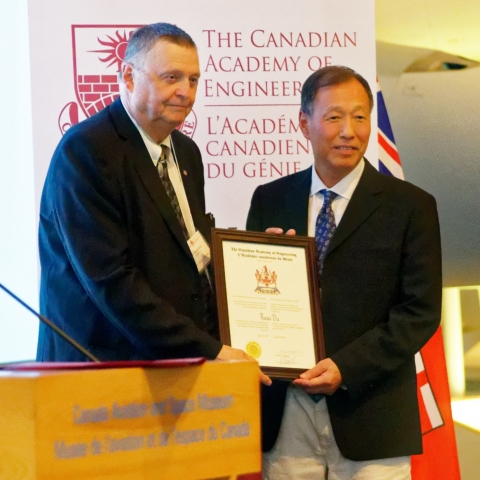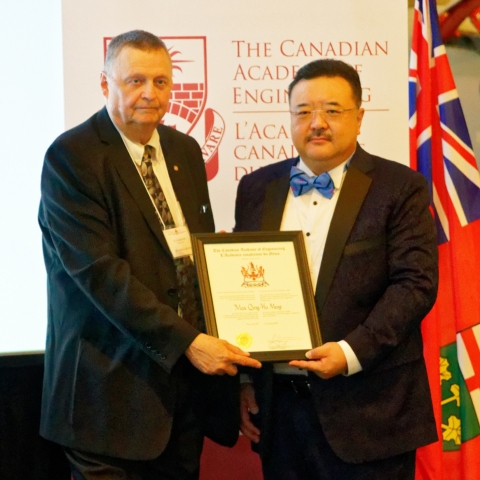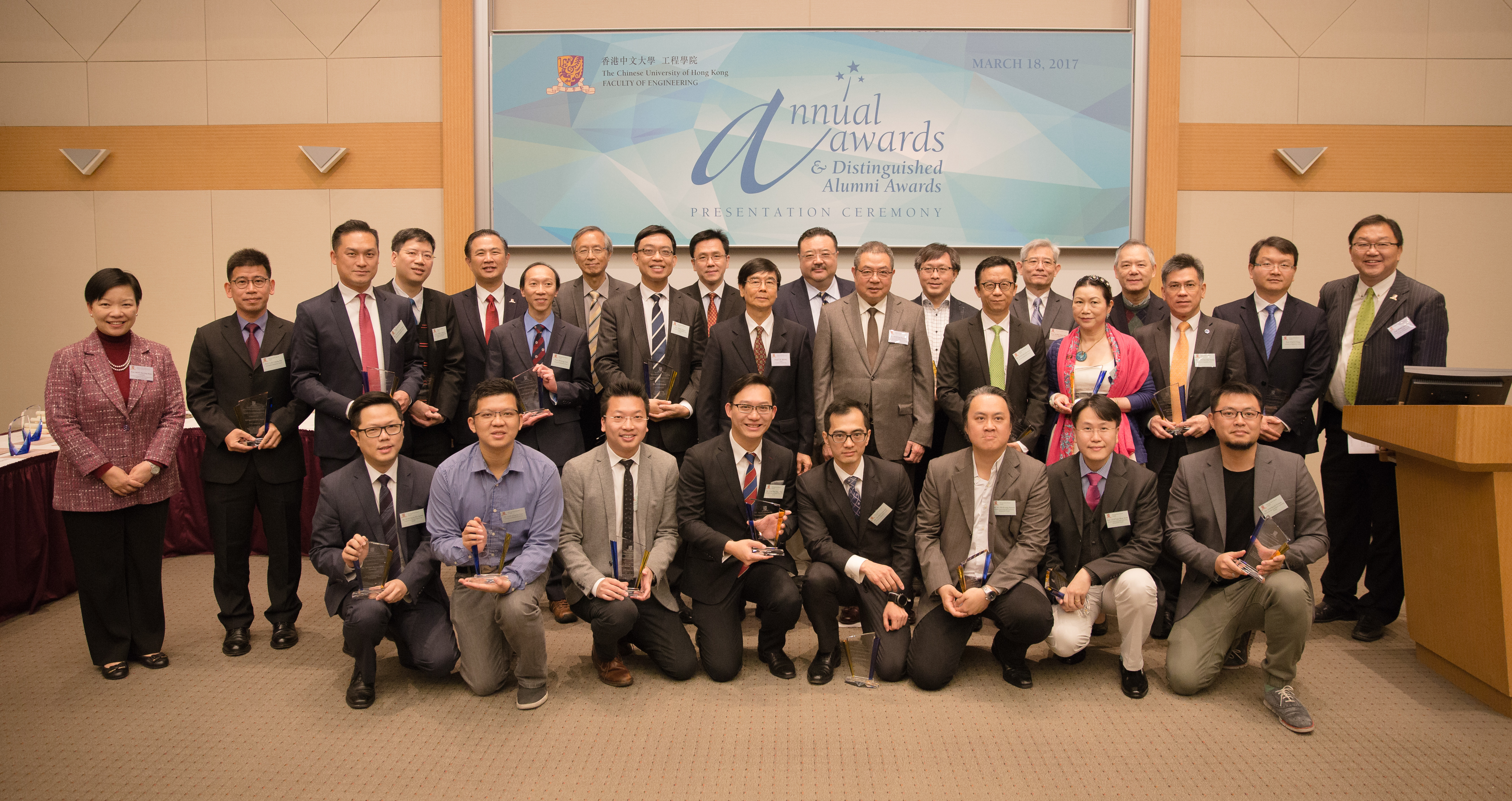Prof. Du Ruxu and Prof. Meng Qing Hu Max of the Faculty of Engineering have been elected Fellows of the Canadian Academy of Engineering (CAE) for their notable achievements in Engineering. This year, a total of 52 new international fellows were inducted, and Professor Du and Professor Meng were the only two fellows from Hong Kong. Professor Du is an expert in manufacturing engineering and precision engineering. He has devoted himself to promoting mechanical manufacturing technology over the years. His inventions have advanced the development of key technologies in this field, especially in metal forming and precision engineering, and established two-mid size companies, leading directly to the global growth of the machinery industry. Precision engineering is a discipline that develops new manufacturing methods to raise the level of machining accuracy from millimeter, through micrometer and sub-micrometer to nanometer, thereby greatly enhancing the quality of mechanical manufacturing equipment. Professor Du has been the Director of the Institute of Precision Engineering of CUHK since 2006 and a professor of the Department of Mechanical and Automation Engineering. He took the lead in inventing and developing new technologies in precision engineering and their applications in various areas, such as biomedical sciences, optics, energy and the environment. He has also developed many innovative manufacturing robotic devices to monitor and diagnose manufacturing processes. He has published over 400 papers as well as over 100 patents, and supervised more than 130 graduate students and research associates, many of whom are now leaders in the field. He was also named a Fellow of the American Society of Mechanical Engineers in 2009 and a Fellow of the Society of Manufacturing Engineers in 2012 for his significant accomplishments in the field of manufacturing engineering. Professor Meng is an international leader in robotics, well known for proposing the world’s first practically-implementable stable adaptive control algorithms for multi-joint industrial robot manipulators, creating the world’s first robotic prosthetic eye, developing the most advanced robotic wireless capsule endoscopy with automatic diagnosis for disease in the gastrointestinal tract, and inventing the world’s first occlusion-free dynamic multi-camera navigation system for surgical robots. He has made impressive contributions to the Canadian industrial and military sectors through successful collaborative projects and the training of highly qualified engineers. Professor Meng is currently the Chairman of the Department of Electronic Engineering. He was also elected a Fellow of the Institute of Electrical and Electronics Engineers in 2008 for his contributions to medical robotics. His research group is among the first in the research and development of active wireless capsule endoscopy and the related image-based automatic diagnosis. About the Canadian Academy of Engineering The Canadian Academy of Engineering (CAE) is the national institution through which Canada's most distinguished and experienced engineers provide strategic advice on matters of critical importance to Canada. The CAE is an independent, self-governing and non-profit organization established in 1987. Members of the CAE are nominated and elected by their peers to honorary fellowships, in view of their distinguished achievements and career-long service to the engineering profession. It comprises a small number of distinguished engineers from all disciplines, who have undertaken to serve the country and the profession in matters of broad concern. |
|





